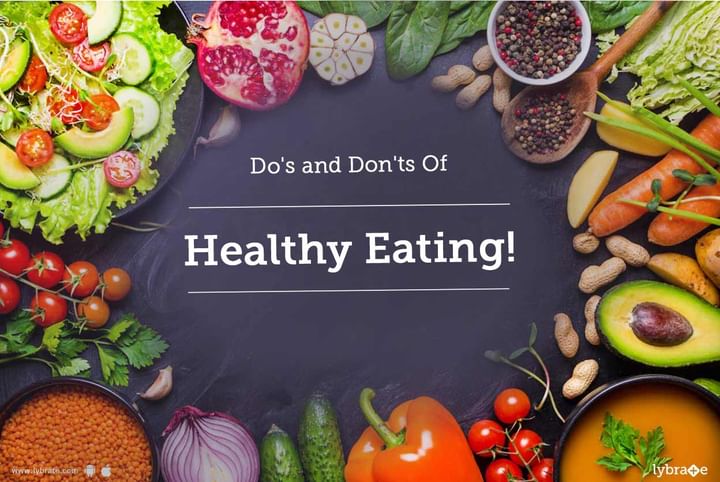Do's and Don'ts Of Healthy Eating!
6 do's and don'ts of healthy eating habits
Do's
1. Try to eat more unprocessed foods
Use fresh ingredients like vegetables, eggs, milk, lean meat etc to prepare your meals in and try to avoid consumption of processed food as far as possible. In most cases, processed food items are loaded with preservatives, added chemical substances, sweeteners, fats and artificial colours, which should be avoided to maintain good health. Also, make sure to include lots of fresh fruits, nuts and legumes in your daily diet instead of fruit juices, instant noodles or frozen food items.
2. Include whole grains in your diet
Whole grains have a lesser glycemic index (figure that measures the ability of carbohydrates to increase glucose in your blood), which makes them a healthy food option. Whole grains keep you full for long hours while providing you with energy to concentrate at work throughout the day. When it comes to taste, the flavour and nuttiness of whole grains are superior to refined ones. So, prefer wholegrain bread, pasta or brown rice when choosing your food items.
3. Monitor your serving sizes
Monitoring the amount of what you eat is important as it helps you to limit your intake of unhealthy food. Also, ensure that the amount of food you eat for dinner is lesser than that of your lunch. Ideally, for lunch, you should ensure that half your meal consists of salad or vegetables and the other half should contain lean proteins and low-gi or whole grain carbs in equal amounts.
Don'ts
1. Skip breakfast
Breakfast is considered to be the most significant meal of the day. Make it a habit to have breakfast every day as skipping this meal can adversely affect your health by causing obesity, irritated mood, and headaches while increasing your risks of getting hypoglycaemia (deficiency of glucose in your bloodstream).
2. Eat excessively saturated fat
Try to minimise your intake of food containing saturated fats as this can lead to the accumulation of weight in different parts of your body. Instead of consuming, huge amounts of milk, cheese, butter, bacon, meat etc. Switch to low-fat substitutes like white-meat chicken, reduced-fat dairy products, soy versions of traditional meat etc.
3. Give up your entire diet plan for a small mistake
If you happen to make only one dieting mistake, don't feel disappointed and start munching on unhealthy or junk food. Just remember that eating large amounts of unhealthy food can nullify all the effects of healthy eating you have experienced so far.
In case you have a concern or query you can always consult an expert & get answers to your questions!



+1.svg)
